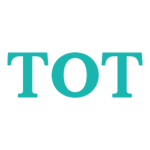Tagged: Technology in Education
- This topic has 3 replies, 3 voices, and was last updated 2 months, 3 weeks ago by
 aruna.
aruna.
-
AuthorPosts
-
-
April 30, 2024 at 6:12 pm #75603

Team CambridgeKeymasterThe use of Information and Communication Technology (ICT) in school has overtaken our classroom post-COVID. Educators and learners both need to be skilled in using the technology effectively.
What strategies did you implement using technology in your school to achieve the same? Please share.
Should you have any queries, this is the best platform with multiple experts on board. They will happily give their feedback and guide you.
-
April 30, 2024 at 8:53 pm #75622
drbilalahmadbhatParticipantHello! with the advancement in technology, teachers have learned to upgrade themselves t align their teaching with fast changing technology. Those who don’t adopt the same will be summerly outdated and useless in coming days .For instance, if teachers do not learn to use generative AI, will see themselves struggling with the fast changing resources.
-
May 2, 2024 at 8:03 am #75756
raukiyaParticipantWith this technological age, we as teacher are adapting every possible strategies to be updated.
Being an early year educator
I have been implementing strategies like gamification which is best way to teach through games. There are many more ways one can learn technology to implement in the class room. -
May 2, 2024 at 3:31 pm #75821

arunaParticipantHello,
Integrating technology effectively into education especially in classrooms requires a strategic and sustainable approach. Here are some strategies that can help educators and learners become skilled in using technology:
Schools should be mindful in investing more time and resources in Professional Development for teachers. It is definitely not a day’s affair. These programmes should be on-going and specific like understanding how to integrate technology into lesson plans, brainstorming solutions for common issues, and staying updated with new technologies. Schools also should provide the required technology resources like necessary software etc.
The digital literacy curriculum can be integrated with skills into the curriculum. Teachers should take up the responsibility to teach students how to use technology responsibly, evaluate online sources for credibility, and protect their privacy and security online.
There are lot of collaborative platforms available such as Google Workspace, Microsoft Teams, or learning management systems like Canva or Moodle to facilitate communication, collaboration, and file sharing among educators and students. These platforms can also streamline assignments, feedback, and grading. Interactive learning tools such as educational apps, simulations, virtual reality experiences, and online multimedia resources to engage students can be integrated.
Teachers should encourage project-based learning activities that require students to use technology to research, create, collaborate, and present their work. This fosters critical thinking, problem-solving, and digital skills.
Teachers should start using technology for formative assessments, quizzes, surveys, and feedback mechanisms. Digital tools can provide instant feedback to students, track their progress over time, and inform instructional decisions.
Technology can be used to improve communication with parents and involve them in their child’s learning journey. Platforms like parent portals, newsletters, and virtual meetings can keep parents informed and engaged.
Utilize data analytics tools to analyse student performance data, identify trends and patterns, and make data-driven decisions to improve teaching and learning outcomes.
By implementing these strategies, schools can create a technology-rich learning environment that empowers both educators and learners to thrive in the digital age.
-
-
AuthorPosts
You must be logged in to reply to this topic.
